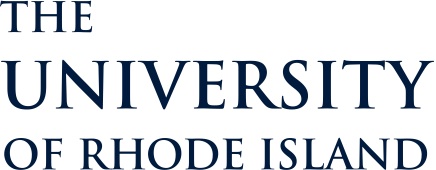Newswise — KINGSTON, R.I., June 15, 2017 — Imagine donning a vest every day that could strengthen your core, improve your posture and align your joints — allowing you to maintain your health or recover from an injury. CoreMechanics LLC of Narragansett envisions just such a device and has called on experts from three colleges at the University of Rhode Island to help make it a reality.
In May, the State of Rhode Island’s Commerce Corp. awarded CoreMechanics a $50,000 Innovation Voucher to partner with URI researchers to determine the device’s efficacy, test its design and function and fine-tune the prototype, called CoreForm. The Innovation Voucher program allows small businesses to tap into research and development capacity at universities, research or medical centers across the state.
"The University has the expertise to get the product to the next level,” said Jerome Rao, president of CoreMechanics, a health and wellness company founded by a doctor of physical therapy, a physical therapy assistant, a senior engineer and a registered dietitian.
That expertise can be found in the College of Health Sciences’ Department of Physical Therapy, the College of Engineering’s Department of Electrical, Computer and Bio-engineering and the College of Business Administration’s Department of Textiles, Fashion Merchandising and Design. Jeff Konin, chairman of the physical therapy department and lead investigator of the research project, said the grant offers great return on investment for all involved. “That $50,000 brings together private entrepreneurs with a vision who then partner with a state economic development initiative that allows them to tap into URI’s research and academic expertise. And it involves experiential learning for graduate students involved in the project,” he said.
CoreMechanics defines CoreForm as a wearable exercise product to prevent and stabilize musculoskeletal injury. It could be worn over a shirt every day in virtually any setting and would be sold over the counter. And unlike a brace that restricts movement, CoreForm fosters proper movement and function, Rao said. “It is compressive and resistive and helps straighten posture, align joints and strengthen core muscles from the neck to the lower back,” he said. “The resistive qualities also improve breathing and circulation as the core muscles gain strength.”
Konin stressed that URI’s role is to conduct independent research on the product’s function and feasibility. Along with fellow physical therapy Professor Pete Blanpied and four doctoral physical therapy students, his department will test CoreForm with patient and student volunteers through URI’s physical therapy clinic and report findings. “This is an exciting and innovative research study and we hope to publish results of our findings,” he said.
The six-week physical therapy study will begin with 10 volunteers in the fall. The physical therapy team will measure volunteers’ pain, posture, range of motion and strength before they start using the device. Then they will retest participants at three weeks and again at the end of the study. “We are looking to see if people feel better and to see if a different resistant material or pressure might be more effective,” he said.
Meanwhile, Professor Martin Bide and Assistant Professor Karle Aspelund in textiles will evaluate the wearability of the fabric and elastic vest, testing the strength of the material and the stitching. Assistant Professor Kunal Mankodiya in engineering will examine the pounds of pressure CoreForm puts on the body and the force the body exerts on the fabric. The study volunteers also will provide feedback on comfort, fit and function.
If the URI researchers determine that CoreForm is effective, Rao hopes to have the product on the market in spring 2018.
